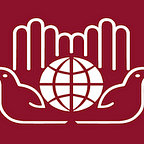Second Humanitarian Blockchain Summit to take place at Fordham University
November 20th, New York — In 2017, the Humanitarian Blockchain Summit welcomed over 300 experts from the corporate, nonprofit, and public sectors for a full day marked by 26 plenary sessions and breakout events to discuss the ongoing pilots of blockchain technology in humanitarian operations. In collaboration with IBM, the leading blockchain for business platform, the second edition of the Humanitarian Blockchain Summit will be held on December 7, 2018, at Fordham University’s Lincoln Center Campus, and promises to be more focused and even more notable.
The Summit is part of the Blockchain for Humanity Initiative led by the Institute of International Humanitarian Affairs (IIHA) at Fordham University, which aims to research the adoption, implementation and scaling of blockchains technology for humanitarian action by community-based or international NGOs, foundations, corporate social responsibility departments, and international organizations. The initiative applies a critical academic approach to move beyond the hype and ultimately build deeper understanding, trust, and knowledge of the effective capacity of distributed ledger technologies (DLTs) to contribute to solutions to the greatest humanitarian challenges of our time.
This year, the Summit will focus on a diversity of features and functionalities in the broad spectrum of DLTs, to occasion a discussion among humanitarians and their partners on the core features of each protocol and its potential for application in humanitarian settings. In this framework, IBM’s technical and business experts will join the discussion to demonstrate how they aim to use blockchain technology to advance collective knowledge and create new models to address the global systemic challenges of poverty, pollution, hunger, and social injustice. This is reflected in the topics of this year’s Summit sessions, which will include open fora focused on the different features of various DLT platforms to be applied in humanitarian settings, deep dives into the IBM \ Hyperledger Fabric, IOTA, and Multichain ecosystems, practical workshops on lessons learned from implementing DLT-based pilots, as well as presentations of evidence from early pilots on blockchains for humanitarian accountability and assets transfer. These are only a few of the offerings of what aims to be a landmark event bringing together the technology, policy, and humanitarian spheres.
Registration is now available via Eventbrite.
Objectives
The goal of the event is for participants to recommend policies for using blockchains in specific humanitarian interventions through:
- Sharing lessons learned and experiences emerging from the early days of implementation of blockchains initiatives for humanitarian action;
- Increasing awareness about the variety of platforms and protocols currently being implemented, and their unique specificities;
- Exploring the ethical adoption of humanitarian blockchains solutions in response to technical, legal, and governance challenges facing the humanitarian sector;
- Bringing together experts from across sectors to foster new partnerships, encourage technical collaboration, and explore non-traditional funding sources;
- Curating existing open-source tools used in humanitarian blockchains services; and
- Building a digital community of developers interested in impacting humanitarian action.
Plenary sessions will highlight the features of the main DLT platforms, and the work of major humanitarian agencies — both intergovernmental and nongovernmental — testing blockchain to address gender equity, cash and food assistance, humanitarian logistics, and other humanitarian challenges. Special announcements will also happen in this context.
Breakout sessions and workshops will introduce specific field-tested prototypes or pilot projects for blockchain technology in humanitarian settings. Topical examples include humanitarian financing; accountability and transparency in assets transfer; identity management in crises; and micro-contracts. Working sessions will also be an opportunity to tackle specific issues that hinder a broader adoption of these systems in the humanitarian sector.
Speakers and participants will be encouraged to provide feedback on ongoing projects and propose new ideas for scale and replication.
A more comprehensive agenda is coming soon.
Core Partners:
Institute of International Humanitarian Affairs
Center for International Humanitarian Cooperation
###
About the IIHA:
The Institute of International Humanitarian Affairs (IIHA) prepares current and future aid workers with the knowledge and skills needed to respond effectively in times of humanitarian crisis and disaster. Our courses are borne of an interdisciplinary curriculum that combines academic theory with the practical experience of seasoned humanitarian professionals. The IIHA also publishes on a wide range of humanitarian topics and regularly hosts a number of events in the New York area, including the annual Humanitarian Blockchain Summit and Design for Humanity Summit.
For more information on the Humanitarian Blockchain Summit please contact:
Giulio Coppi
IIHA Humanitarian Innovation Fellow
gcoppi@fordham.edu
Aiden Slavin
IIHA Visiting Humanitarian Innovation Fellow
aslavin2@fordham.edu
For media inquiries please contact:
Kaitlyn Lyngaas
Communications Officer
klyngaas@fordham.edu
